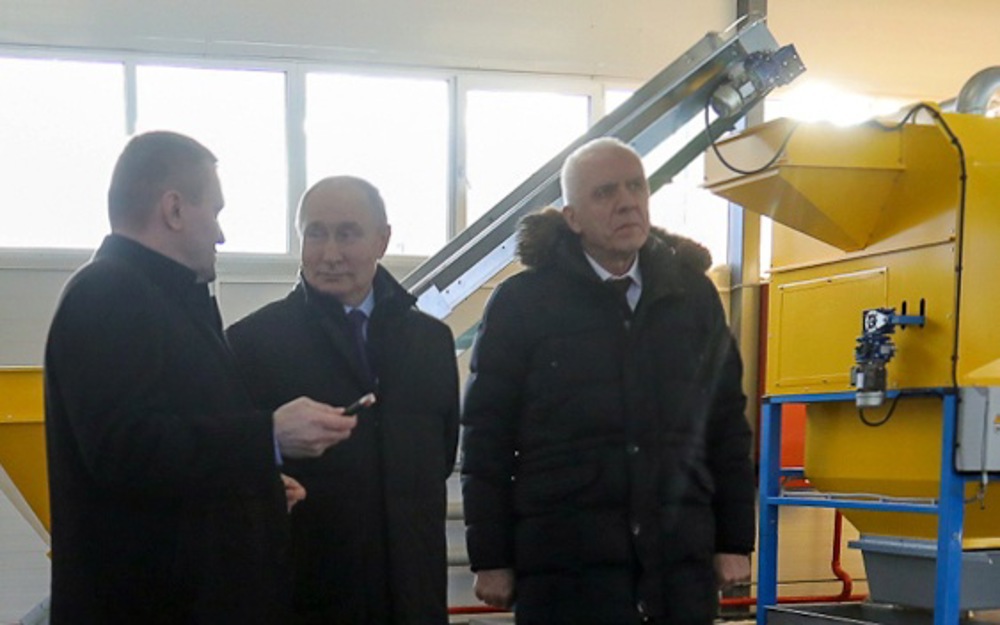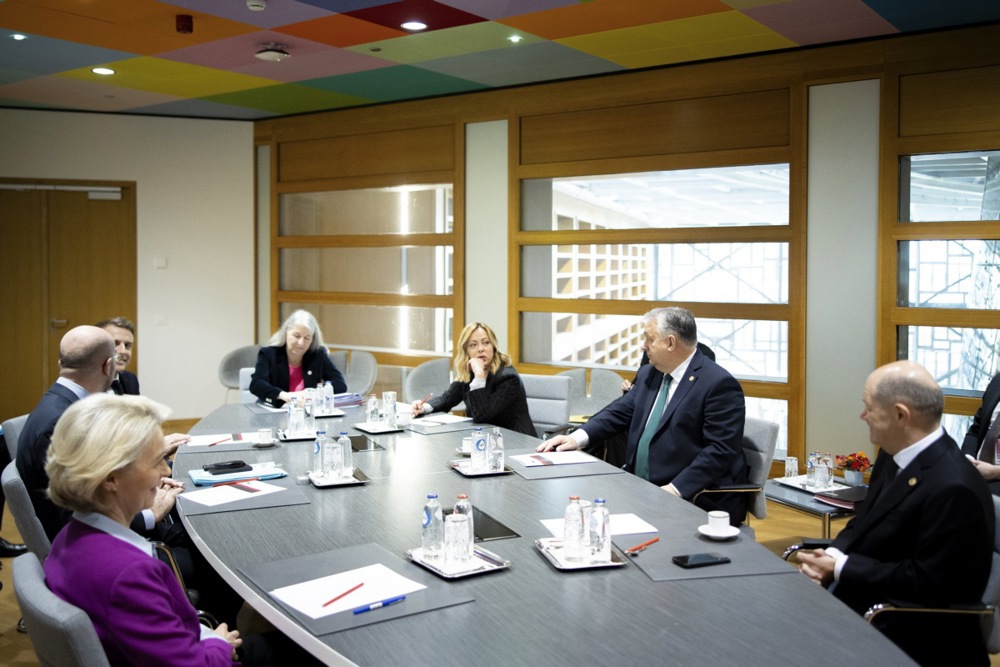The European Union slapped a new series of economic sanctions on Russia – for the 14th time.
On June 20 the bloc said, for the first time ever, the move would also include liquefied natural gas (LNG) – a tricky item given many European countries are highly dependent on the energy source.
The 14th package of sanctions proved a hard nut to crack with the negotiations lasting longer than expected. The EU had first aimed to reach an accord before the G7 summit in Italy on June 13-15 and the Peace Summit in Switzerland ending June 16 but without success.
Diplomats pointed towards Germany for holding up progress over Berlin’s concerns with respect to the possible impacts on its economy.
Another problem lay with the first-time inclusion in a sanctions package of Russia’s multi-billion euro LNG output.
On June 20, the Belgian Presidency of the Council of the European Union announced the breakthrough.
?? EU Ambassadors just agreed on a powerful and substantial 14th package of sanctions in reaction to the Russian aggression against Ukraine.
This package provides new targeted measures and maximises the impact of existing sanctions by closing loopholes.
— Belgian Presidency of the Council of the EU 2024 (@EU2024BE) June 20, 2024
Few details were given about the latest package other than that there would be some new measures alongside others designed to close loopholes and maximise the impact of existing sanctions.
Belgium’s Minister of Energy Tinne Van Der Straeten said the new sanctions involved a ban on the transshipment of LNG in the EU.
Outgoing Dutch foreign minister Hanke Bruins Slot said the latest package allowed the Russian “shadow fleet” of LNG and oil carriers to be denied access to European harbours and services, thus stopping them circumventing international sanctions and regulations.
European Commission President Ursula von der Leyen said the package would “strip Russia of further energy revenues”.
That might be overstating the effect of the new sanctions. Russian LNG will remain for sale in EU countries but they will be forbidden from re-exporting it to other nations.
Macroeconomist and author Philip Pilkington told Brussels Signal: “It goes without saying that these sanctions will not harm Russia. It is now widely recognised that those who impose these sanctions have discredited themselves.
“If they do succeed in rerouting Russian LNG away from Europe, gas and electricity prices will rise in Europe this winter.”
Stephen Stapczynski, a Bloomberg reporter covering energy and commodities, noted: “Some analysts have suggested that the new EU sanctions could actually increase Russian LNG imports.
“If Russia can’t transship the fuel for ports in Asia or elsewhere, then they’ll be forced to just offload it into Europe.”
A reminder that several EU countries (above all, France and Spain) keep importing huge amounts of Russian LNG. 'Lord, give us moral strength — but not yet.' https://t.co/cZ38qslLKx
— Javier Blas (@JavierBlas) June 20, 2024
The Centre for Research on Energy and Clean Air (CREA), an independent organisation that tracks Russian fossil fuels, estimated the bloc paid €8.2 billion last year for 20 billion cubic metres of Russian LNG, representing 5 per cent of total EU gas consumption.
Belgium, France and Spain were the main entry points for it. Re-export is an important activity in those hubs.
CREA said in April 2022 that, with €717 million from LNG imports, the Belgian port of Zeebrugge ranked sixth globally for the value of Russian fossil-fuel shipments received during the first two months following Russia’s invasion of Ukraine.
The French port of Montoir is one of the largest terminals in Europe in terms of size and capacity and is able receive the largest LNG carriers in the world.
Next to LNG, the EU also targeted Moscow’s SPFS banking messaging system, which Russia uses to mitigate the impact of being cut off from the global SWIFT financial transfer system by the West.
Since the first package, Russia has been working on bypassing international sanctions, often by importing and exporting via third countries.
Europe and the US have long tried to undermine the Russian economy and prevent Western technology from falling in the hands of those who would use it against Ukraine.





